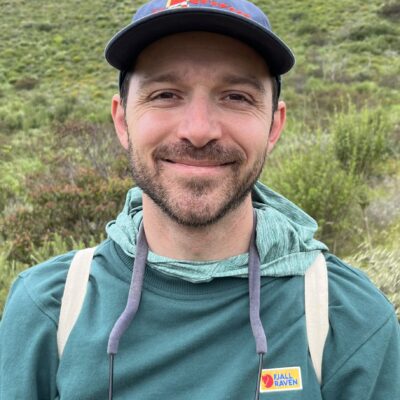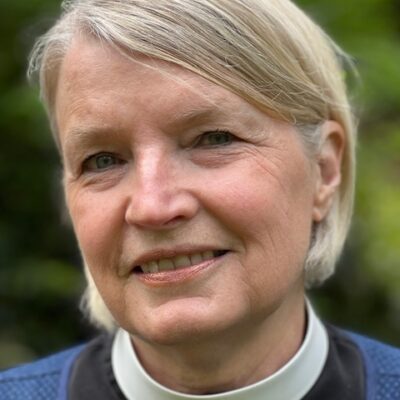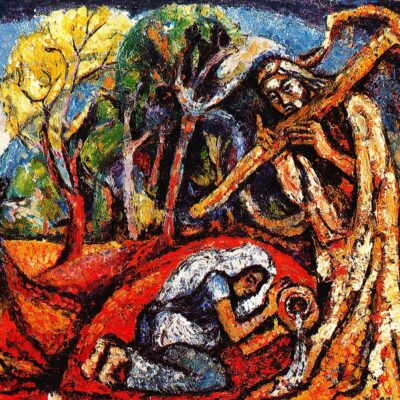The Good Shepherd
The first time I served as the clergy with cure, in other words, the clergy with charge for the care of a congregation, was in Northern Nevada. I knew almost nothing about Nevada, including how to correctly pronounce it. Of course I learned quickly about casinos and gaming culture. I was introduced to the high desert and learned to hike in territory that included bears, mountain lions and rattlesnakes.
One of the most fascinating aspects of Northern Nevada culture and history is the story of the many Basque people who migrated to the area in the 1800’s. The men came first and took up shepherding since they were already experts at this profession. These shepherds brought their sheep up into the high range of the Sierras in remote and dangerous territory. They travelled alone, with just their animals and a sheep dog for company. In the summers and fall they wandered through pine forests and mountain meadows.
As a hiker, I would sometimes come upon older aspen and other trees that still showed signs of their carving. Along with initials and images of buxom women, there would be religious carvings of the sacred heart or the crown and cross. These lonely men were far from home, far from comfort and facing a multitude of risks on behalf of their sheep. They slept among the animals, alert to predators and ready to defend the sheep with both large sticks and sometimes rifles.
In the winter, when they came down from the high country they took rooms in boarding houses which usually offered communal dining at long tables. Meals were hearty as they put back pounds they had lost over months of hard labor with decreased food. Some of these establishments were still in existence 30 years ago when I lived there, places like the Star in Elko and Louie’s Basque corner in Reno. Food is served family style with bowls of soup and platters of meat. Carafes of dry red wine are passed around and sometimes there’s singing. After months of loneliness and deprivation, these gatherings refreshed body and soul.
This is Good Shepherd Sunday, so called because twice in today’s gospel, Jesus proclaims himself as the Good Shepherd in an extended metaphor describing his relationship to us. Most of us have little or no experience of sheep and shepherding so our imaginations conjure up many different visions of what this might mean. But for me, it’s the Basque shepherd who comes to mind.
The shepherd is with the sheep. The shepherd enters the everyday lives of the sheep, watching over them in sleep, leading them to food and pasture, repelling intruders and dangers. They face all the conditions of weather and terrain together, sharing life’s circumstances. When difficulty comes, and it always does, the shepherd doesn’t abandon the sheep but remains in their midst in spite of the danger and suffering.
The shepherd and the sheep know one another. The sheep depend upon the shepherd, therefore they recognize the voice of the shepherd and will follow him through storm or darkness. They will be loyal even when other voices try to lure them away. They are bonded to their shepherd.
So far, the metaphor works not only for Jesus but for any good and faithful leader. It applies to us in our relationships where we are responsible for others. You may recognize your role as a parent, grandparent or caring family member. Some of us who are oldest children are very aware of our position as responsible sibling in the family. Some grandparents are picking up caregiving responsibilities for their grandchildren. Many of us have duties towards aging parents or family members with disabilities including addiction and mental illness. We know about being present, about trying to mitigate danger and disaster, about sacrificing time and money on behalf of those we love. We know the loneliness of responsibility when it seems as if the weight of the world (or at least the weight of those we care for) is upon our shoulders.
Some of us experience this in our professional lives as well, where we are caring for students, patients, parishioners, customers, residents or any number of people who need us to be present, patient, faithful and hard-working on their behalf. There is the challenge of trying to help those who resist help, who refuse to cooperate, who do not reciprocate or are unable to participate in their own care. We may have sacrificed our finances, time and even our own health on their behalf. We get what it takes to shepherd sheep who cannot fully care for their own needs.
But the metaphor breaks down or maybe it simply takes on a completely new meaning when Jesus calls himself the Good Shepherd. Our caregiving may come to an end but Jesus never ends his unconditional love for humanity. He never wears out or gives up on us. Not even death separates us from the love of God in Christ Jesus. We have a Good Shepherd who will not abandon us.
Jesus, the Good Shepherd lays down his life for us. His act of sacrificial love on the cross covers not just his immediate disciples but extends to every one of us. This is a love that isn’t dependent upon whether or not we are good people or believers or even part of a particular flock. He lays down his life for every tribe and language and people. He has other sheep who don’t belong to the fold we are part of and he is willing to give his life for them as well.
Finally, he will bring all of us, those who know him, listen to his voice and follow him and those who don’t, into the safety of the sheepfold. There will be a banquet surpassing all our visions of plenty and pleasure. We will be seated with people from every time and place at a table with no ending. All will be fed in abundance. Those of us who grumbled like the elder son at the antics of the prodigal brother will be included just as those who felt themselves rejected and on the margins will find themselves in the center of the party.
The Good Shepherd is good because he is love incarnate. He is the love of God in human form and eternal love that can never be killed or destroyed. The King of love, my shepherd is, sings the hymn and we join in the chorus with “His goodness faileth never.”
I’m your pastor and I know many of you are carrying heavy burdens and overwhelming responsibilities. I wish I could somehow ease your load or protect you from pain and suffering but that’s not my role. I am a shepherd, but I’m not the Good Shepherd. Like you, I need the care of the One who lays down his life for the sheep. I’m just “one beggar telling another beggar where to get bread.” (Charles Spurgeon)
Together we can come to the table. We can sit ourselves down with strangers and friends, with those we love and who drive us crazy, with those who cause us so much pain and sorrow and with those who are our heart’s joy. We can pass around the bowls of hot soup and the platters of meat and vegetables. We’ve come in out of the cold, away from the fear and danger, leaving our loneliness behind us and pulling up a seat at the endless table of grace. We’re making room for others, singing songs and sharing toasts.
Every now and then we catch the eye of the Good Shepherd in the loving glance of another and we hear the voice of the Good Shepherd who names us as God’s beloved one. And we remember we are never alone. “Surely your goodness and mercy shall follow me all the days of my life, and I will dwell in the house of the Lord for ever.” Amen.






Leave a Reply